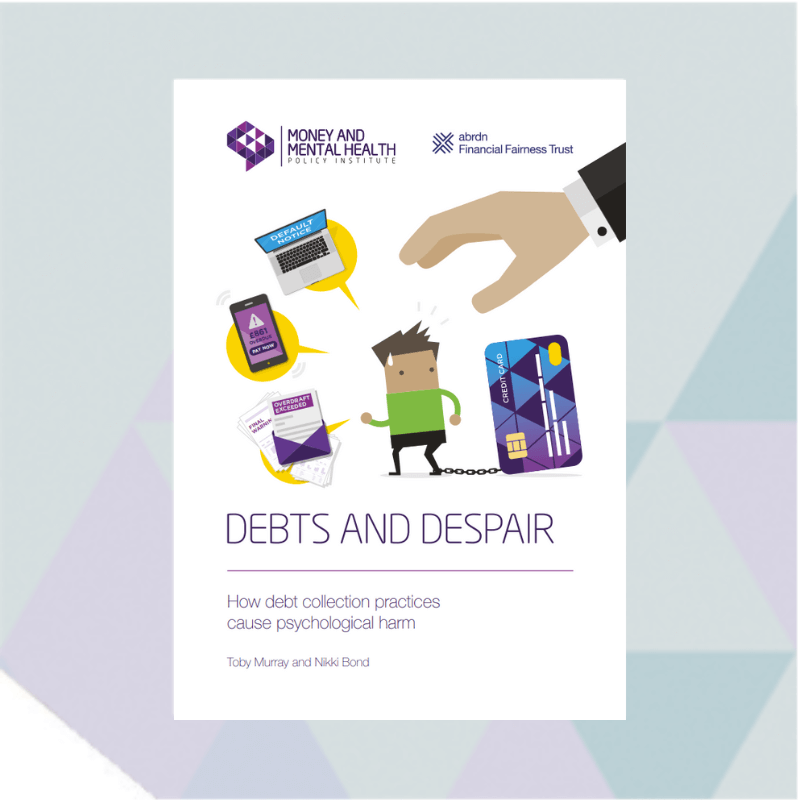Toby Murray, Senior Research Officer, and Nikki Bond, Interim Head of Research and Policy, Money and Mental Health Policy Institute
Debts and despair
How debt collection practices contribute to psychological harm
Please note: this report contains information about suicide and self harm that readers may find distressing. If you’re in need of support, you can call Samaritans for free on 116 123 anytime of the day – or you can text SHOUT to 85258. For information about where to find support with your money or mental health, you can find some resources on our get help page.
This report (which is funded by abrdn Financial Fairness Trust) looks at people’s experiences with consumer credit, including credit cards and buy-now-pay-later payments, during the cost of living crisis.
It shows that 5.2m people across the UK are behind on consumer credit payments, an increase of 1.5m since November 2022.
The report also shows that 1 in 4 (24%) people who have missed payments are contacted by their creditors every 1-2 days — and some people with multiple debts say they are receiving several letters, emails or calls each day.
Nearly half of people who are behind on payments say they feel harassed (49%) or overwhelmed (48%) by the volume of contact they receive from their creditors.
This is causing unnecessary distress at a time when 50% of people who are behind on bills say they have felt suicidal due to the rising cost of living.
Key Recommendations
We’re calling on the government and regulators to urgently address these issues by putting in place clear limits on how often creditors can contact people about missed payments.
The government should:
- Task the FCA with an immediate review of consumer credit collection practices that address the harm caused by high volumes of arrears communications.
The FCA should:
- Launch an urgent review of collection practices to understand the scale of communications customers receive and use this to update outdated definitions of harassment in regulation
- Develop principles to guide firms’ collections departments when they use credit referencing data so debt collection strategies are created with a holistic understanding of the consumer experience built in.
Financial services firms should:
- Conduct comprehensive internal reviews to understand the frequency of communications customers in arrears receive. This should be done with a view to reducing communications to ensure collections approaches meet Consumer Duty requirements and minimise psychological harm.
abrdn Financial Fairness Trust has supported this project as part of its mission to contribute towards strategic change which improves financial well-being in the UK. The Trust funds research, policy work and campaigning activities to tackle financial problems and improve living standards for people on low-to-middle incomes in the UK. It is an independent charitable foundation registered in Scotland (SC040877).

